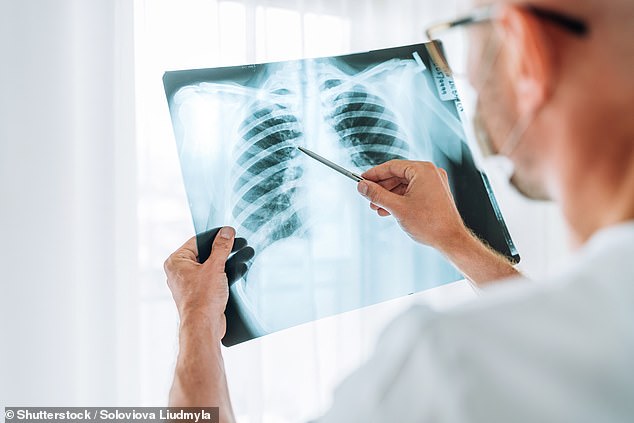Dizzy spells could mean ear crystals have moved: Ask the GP DR MARTIN SCURR
Are there treatments for dizziness? My consultant discharged me from the balance clinic earlier this year after an MRI and other tests found nothing wrong. But since then I have had three more attacks (the dizziness started 18 months ago). I was prescribed cinnarizine, but the tablets do not stop the dizziness.
Joan Jones, Shepperton, Surrey.
The term “dizziness” in medicine refers to the very unpleasant feeling that everything around you is spinning. It is not – as many people think – fear of heights.
The tests you have undergone have ruled out a sinister cause (such as a stroke or tumor); This type of illness or injury-related dizziness is known as central vertigo.
But I’m wondering if you might have peripheral vertigo, where symptoms of dizziness and nausea are due to a problem in the inner ear mechanism that controls balance, and are caused by movement, especially of the head.
The term “dizziness” in medicine refers to the very unpleasant feeling that everything around you is spinning. It is not – as many people think – fear of heights, writes Dr. Martin Scurr (Stock Image)
Although much less concerning, this type of dizziness can still be very unpleasant. It is often caused by benign paroxysmal positional vertigo (BPPV), a common inner ear condition that occurs when calcium crystals that naturally occur there become dislodged and enter the wrong part of the inner ear, disrupting signals to the brain. Why they become detached is not clear, but they move into one of the semicircular canals that are part of the balancing structure of the inner ear. This will not show up on a scan or other test, so the diagnosis depends on the history of your problems.
Sometimes BPPV improves without treatment, although this can take months. This was clearly not the case with you. And because BPPV is a mechanical condition, anti-nausea medications such as cinnarizine will not stop the dizziness.
It is important to seek treatment because BPPV also carries the risk of falls. One method involves exercises from a specialist or physiotherapist to remove dislodged crystals from the ear canals.
The most commonly used procedure is the Epley maneuver, which takes minutes. An alternative, often prescribed as a follow-up, is the Cawthorne-Cooksey exercises, movements to improve the functioning of the balance mechanism.
I suggest that you discuss the matter again with your GP to devise a treatment plan.
I am an 80 year old man who had a triple bypass in 2004. I have since seen a cardiologist and he prescribed a number of medications, but none stop my shortness of breath. He now wants me to have a stress echocardiogram done. What will it show?
Keith Bell, Bradford.
The operation you underwent 19 years ago was intended to ensure that enough oxygen-rich blood could reach your heart after your vital coronary arteries became narrowed or blocked due to cholesterol buildup.
The surgery redirects blood flow around blocked arteries using veins taken from elsewhere. The term triple bypass means that there were three locations where this procedure was necessary.

The shortness of breath means your heart muscle isn’t working efficiently – reduced blood flow means less oxygen is available to your lungs, writes Dr Martin Scurr (Stock Image)
Since surgery, I expect you have been taking cholesterol-lowering statins to minimize the risk of further blockages, and medications to control other risks to your heart health, such as high blood pressure.
The shortness of breath means your heart muscle is not working efficiently – reduced blood flow means less oxygen is available to your lungs. A stress echocardiogram shows how your heart muscles and valves work. It involves an ultrasound of the heart while you rest, and then the same scan while walking on a treadmill.
It measures blood flow in the heart and allows accurate measurement of how well your heart valves and muscles are working.
In an adult man, a healthy heart pumps approximately 140 ml of blood during each heartbeat. It increases enormously when you exercise. If the heart muscle is damaged, not as much blood is pumped out. Running on a treadmill requires more effort and therefore more blood is pumped.
If it is low, it is likely related to the original condition that led to your bypass.
Your cardiologist may describe what is happening as heart failure, which sounds alarming; but in reality it means the heart has become less efficient – and there are treatments that can help.
Write to Dr Scurr
Write to Dr. Scurr from Good Health, Daily Mail, 9 Derry Street, London, W8 5HY or email: drmartin@dailymail.co.uk. Dr. Scurr cannot enter into personal correspondence. Answers should be taken in a general context. If you have health problems, consult your own doctor.
